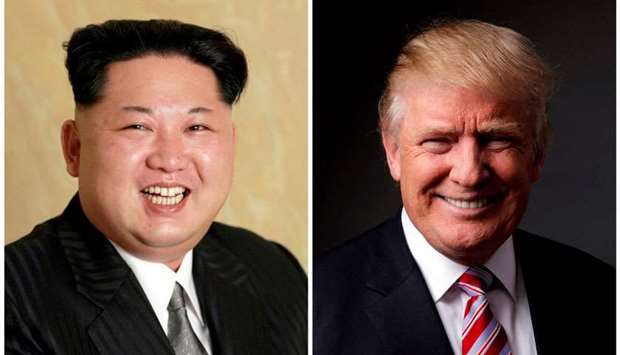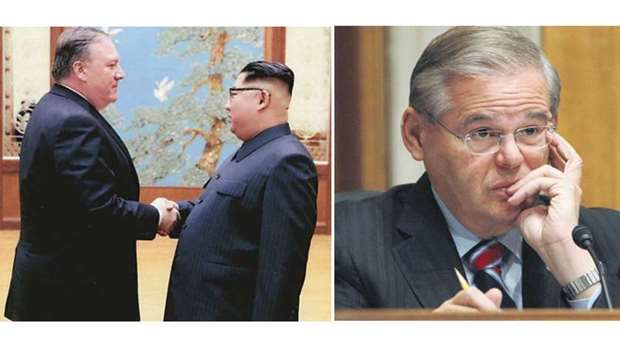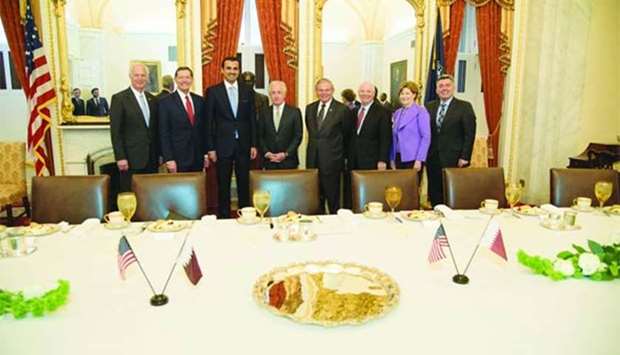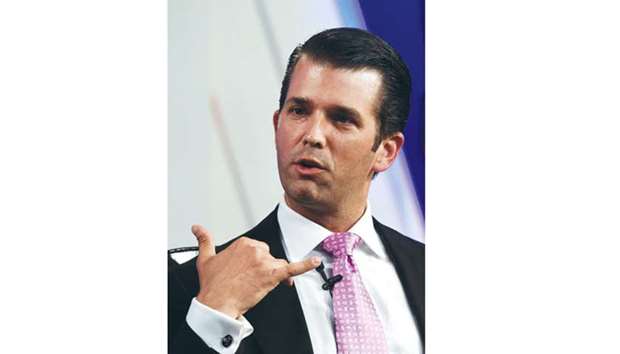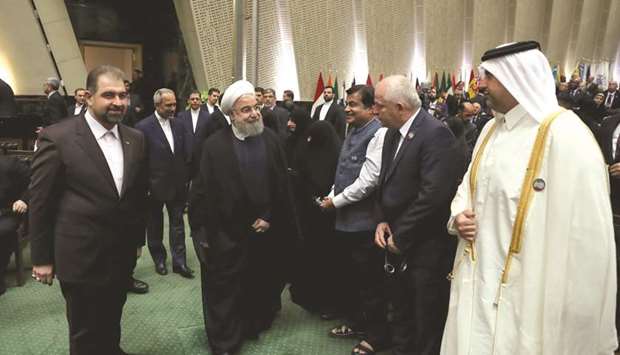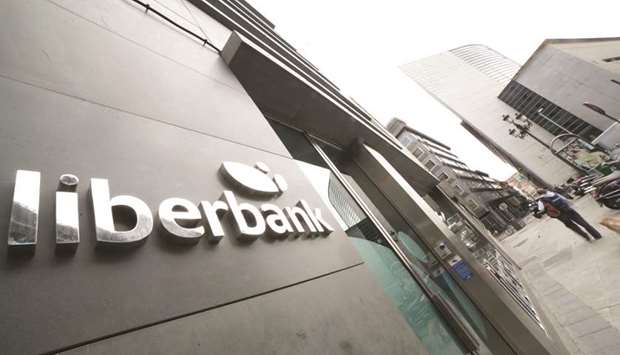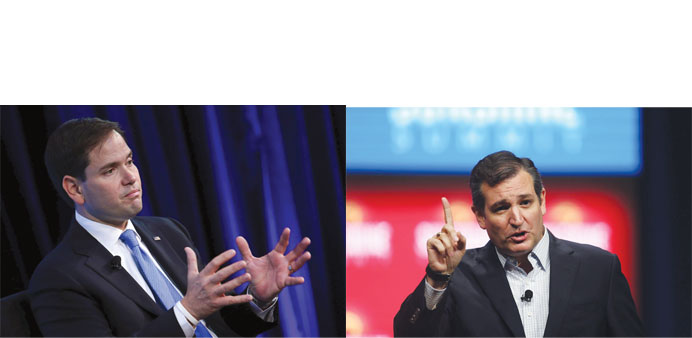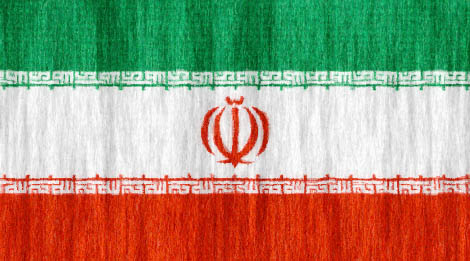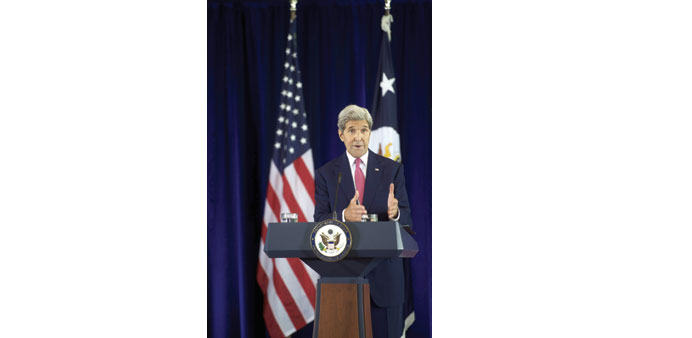* Remark about Pence was ‘last straw’ * Trump cites ‘missed opportunity’ * North Korea blows up nuclear test tunnel US President Donald Trump on Thursday called off a historic summit with North Korean leader Kim Jong Un scheduled for next month, even after North Korea followed through on a pledge to blow up tunnels at its nuclear test site. Trump announced his abrupt withdrawal from what would have been a first-ever meeting between a serving US president and a North Korean leader in Singapore on June 12 in a letter to Kim. A White House official said a North Korean official's condemnation of US Vice President Mike Pence as a ‘political dummy’ was ‘the last straw’ that led to cancelling the summit. ‘Sadly, based on the tremendous anger and open hostility displayed in your most recent statement, I feel it would be inappropriate, at this time, to have this long-planned meeting,’ Trump wrote to Kim. ‘Please let this letter serve to represent that the Singapore summit, for the good of both parties, but to the detriment of the world, will not take place.’ Trump called it ‘a missed opportunity’ and said he still hoped to meet Kim someday. However, the chances for a quick rescheduling appear remote and cancellation of the summit will renew fears of a return to conflict on the Korean peninsula. The North Korean mission to the United Nations did not immediately respond to a request for comment on Trump’s cancellation of the summit. US stocks dropped sharply on the news, with the benchmark S&P 500 Index falling more than half a percent in about 10 minutes. Investors turned to US Treasury debt as a safe alternative, driving the yield on the 10-year note, which moves inversely to its price, down to a 10-day low and back below the psychologically important 3 percent level. The US dollar also weakened broadly, particularly against the Japanese yen, which climbed to a two-week high against the greenback. ‘You talk about your nuclear capabilities, but ours are so massive and powerful that I pray to God that they will never have to be used,’ he said. Earlier on Thursday, North Korea had repeated a threat to pull out of the summit with Trump next month and warned it was prepared for a nuclear showdown with Washington if necessary. DECADES OF TENSION North Korea's pursuit of nuclear weapons has been a source of tension on the Korean peninsula for decades, as well as antagonism with Washington, but escalated into fears of war last year after North Korea said it had tested an H-bomb and developed a missile capable of hitting the United States. The rhetoric reached war-like heights under Trump as he mocked Kim as ‘little rocket man’ and in address at the United Nations threatened to ‘totally destroy’ North Korea if necessary. Kim had called Trump mentally deranged and threatened to ‘tame’ him with fire. Kim rarely leaves North Korea and his willingness to meet and Trump's acceptance sparked hope but it had faded in recent days. Trump's letter to Kim also referred to the possibility of war. ‘You talk about your nuclear capabilities, but ours are so massive and powerful that I pray to God that they will never have to be used,’ he said. The reference to Pence that offended the White House came in a statement released by North Korean media and citing Vice Foreign Minister Choe Son Hui. She had called Pence a ‘political dummy’ for comparing North Korea - a ‘nuclear weapons state’ - to Libya, where Muammar Gaddafi gave up his unfinished nuclear development programme, only to be later killed by NATO-backed fighters. ‘Whether the US will meet us at a meeting room or encounter us at nuclear-to-nuclear showdown is entirely dependent upon the decision and behavior of the United States,’ Choe said. US national security adviser John Bolton first advocated a Libya as a model of disarmament. That incensed North Korea, which said the reason it had its nuclear arms was to ensure it did not end up like Libya and its then-leader. Gaddafi gave up his unfinished nuclear program only to be later killed by NATO-backed fighters. The White House official said back channels for discussions with North Korea remained open and there still was hope for peace but Pyongyang must first change its rhetoric. SOUTH KOREA SURPRISED South Korea's presidential Blue House appeared taken off guard by Trump's letter and an official said it was ‘trying to figure out what President Trump exactly meant.’ South Korean President Moon Jae-in had met with Trump at the White House on Tuesday to urge him to follow through on the summit and not let a rare opportunity with reclusive North Korea slip away. A few hours before Trump announced the cancellation, a small group of international media selected by North Korea witnessed the demolition of tunnels at the Punggye-ri site on Thursday, which Pyongyang said was proof of its commitment to end nuclear testing. The apparent destruction of what North Korea said was its only nuclear test site has been widely welcomed as a positive, if largely symbolic, step toward resolving tension over its weapons. Kim has declared his nuclear force complete, amid speculation the site was obsolete anyway. Cancellation of the summit denies Trump what supporters hoped could have been the biggest diplomatic achievement of his presidency, and one worthy of a Nobel Peace Prize. Senator Bob Menendez, the top Democrat on the Foreign Relations Committee, said he had not had a sense that the administration had engaged in the detailed preparations necessary for a successful summit with Kim. He also suggested that recent rhetoric from top administration officials might not have been appropriate ahead of the meeting. ‘I'm not sure that constantly quoting the Libya model is the diplomatic way to try to get to the results that we try to seek in North Korea,’ Menendez said at the start of a committee hearing with Secretary of State Mike Pompeo. The outlook for the Trump-Kim meeting had suffered a setback this month after North Korea angrily rejected the notion that would agree to unilateral nuclear disarmament as the United States has demanded. Trump responded by raising his own doubts as to whether the summit would go forward but seeking to placate Kim by pledging that on Thursday that Kim’s security would be guaranteed in any deal. At the same time, Trump insisted on concrete steps before any easing of sanctions and warned that failure to reach a denuclearization agreement could lead to ‘decimation’ of Kim's rule. Defense stocks got a lift from Trump's announcement, and the NYSE Arca Defense Index rose nearly 1 percent to near a record high. The advance was led by a 3 percent gain in military drone maker AeroVironment Inc, and major US defense contractors such as Raytheon Co, Lockheed Martin Corp , General Dynamics Corp and Northrop Grumman Corp all moved higher.
Tuesday, February 10, 2026
|
Daily Newspaper published by GPPC Doha, Qatar.

